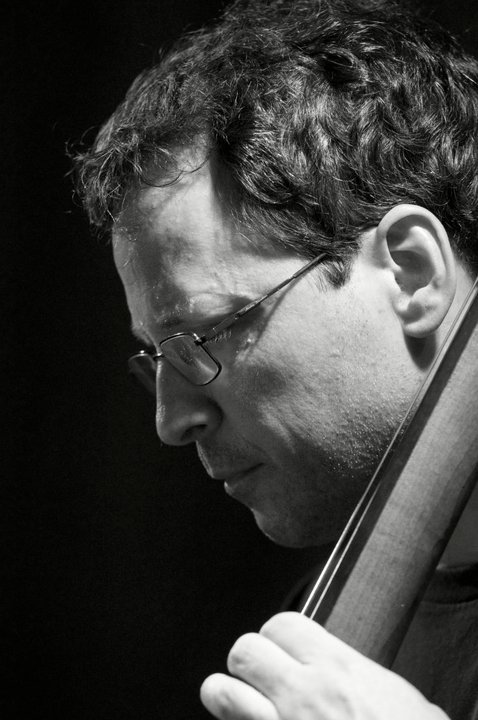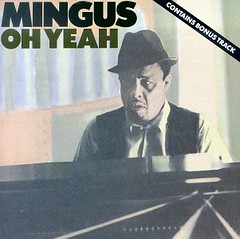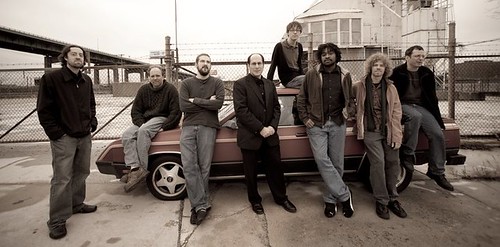
 BY ZIVIT SHLANK Bassist/Composer Keith DeStefano is uniquely quixotic. As a musician, he’s a curious combination of manic focus and reckless composure; sort of a mad, musical scientist. Largely self-taught on guitar and bass, Keith got hooked on jazz early on by the urging of his guitar teacher. A self-proclaimed weirdo, Keith was grooving to the sounds of Charlie Parker and John Coltrane’s A Love Supreme while most kids were listening to rock and pop. Performing alongside local legends (and sidemen to Max Roach) bassist Tyrone Brown and saxophonist Odean Pope opened him up to the different textural possibilities of instrumentation. Inspired by Pope’s free jazz tendencies, the composed theatrics of Charles Mingus’ eclecticism and his own desire to explore beyond the traditional, Keith formed the collective Puzzlebox in 2005. Their second CD A Place To Be showcases Keith’s ability to compose music that is unconventionally melodic. It’s orchestral and cinematic in scope, tightly arranged but with plenty of wiggle room. Some tunes tip their hat to the traditional “head-solo-head” format, but most go above and beyond in surprisingly fresh directions. With Tritone soon closing its doors for good, this may be your last chance to see them play after a two- year-long monthly residency. They hit the stage at Tritone tonight at 9:30. PHAWKER recently engaged Keith in caffeinated conversation.
BY ZIVIT SHLANK Bassist/Composer Keith DeStefano is uniquely quixotic. As a musician, he’s a curious combination of manic focus and reckless composure; sort of a mad, musical scientist. Largely self-taught on guitar and bass, Keith got hooked on jazz early on by the urging of his guitar teacher. A self-proclaimed weirdo, Keith was grooving to the sounds of Charlie Parker and John Coltrane’s A Love Supreme while most kids were listening to rock and pop. Performing alongside local legends (and sidemen to Max Roach) bassist Tyrone Brown and saxophonist Odean Pope opened him up to the different textural possibilities of instrumentation. Inspired by Pope’s free jazz tendencies, the composed theatrics of Charles Mingus’ eclecticism and his own desire to explore beyond the traditional, Keith formed the collective Puzzlebox in 2005. Their second CD A Place To Be showcases Keith’s ability to compose music that is unconventionally melodic. It’s orchestral and cinematic in scope, tightly arranged but with plenty of wiggle room. Some tunes tip their hat to the traditional “head-solo-head” format, but most go above and beyond in surprisingly fresh directions. With Tritone soon closing its doors for good, this may be your last chance to see them play after a two- year-long monthly residency. They hit the stage at Tritone tonight at 9:30. PHAWKER recently engaged Keith in caffeinated conversation.
PHAWKER: When I hear a word like ‘Puzzlebox’ I think of a portrait and pieces project. Describe the picture you’re trying to create.
KEITH DESTEFANO: It kinda began when I was playing with Odean Pope’s Collective Voices Ensemble; it was essentially a sax choir set up that I was really into. Seeing Bobby Zankel’s band also inspired me to wanna go big. As a composer I’m self-taught, it was only in the last year or so that I started studying classically. I just found the traditional song formula annoying, ya know? You hear so many tunes where the band would play the beginning head, then this guy would solo and the next guy would solo, and then the band would head out. I really wanted to get away from that. I wanted to explore and play around. My music is also heavily influenced by Mingus. He would always bring in classical or flamenco style music among other things. I love classical music, I love film music, and all kinds of music, and so I definitely wanted to incorporate all that as well. I didn’t wanna do jazz standards; I wanted it to be strictly original music.
PHAWKER: Your latest CD A Place To Be has a very ambiguous title. Was that intentional?
KEITH DESTEFANO: It’s really about a place to try and find myself in artistically, to fit in somewhere. It was more a longing, really. It sounds kind of adolescent, but it really isn’t; it’s quasi-existential. It’s existentially existential.
PHAWKER: ”Hair of the Dog”, “Half Remembered Theme From A Film Noir”, “Onomonopia”, and “6:25”. When I first saw the track listing in the CD, my first thought was “these guys have a good sense of humor.” It was immediately followed by the question “did y’all come up with these titles after an all-night binger?”
KEITH DESTEFANO: There’s also a song that didn’t make it on the CD called “Kung Fu Love Story”. There’s a story behind all the names, but it’s not particularly that interesting. Like “6:25”, I was in the kitchen making dinner. There was a guitar lying around and an idea came to me at 6:25. See? Not that interesting. Well, “Hair of the Dog” hmm…well, everyone in the band loves Jameson except for the drummer, Joe, he drinks vodka. Anyway, that sounds so romantic I should say something like “yes, we were all hungover and in recovery”, but it wasn’t like that. When I wrote it, I, you know I can’t remember. Maybe I was hungover.
PHAWKER: Well, it would certainly follow in the tradition of most musicians, the common perception that you all like to booze and smoke the “jazz” cigarettes.
KEITH DESTEFANO: Well, that’s true. Personally, I can’t play my music unless my head is clear; it’s not easy music to play. When you’re playing in 7/4 and 13/4 and all these odd times, maybe in the same song, it’s hard to keep up with. So I don’t know…I’m gonna plead the fifth on that one.
PHAWKER: That’s insane. I wonder what your bandmates thought when you first handed them the charts.
KEITH DESTEFANO: They probably think I’m psychotic because I rewrote the tracks so many times. Our drummer, Joe Falcey, kept all the old charts and said that we should have a party with a giant bonfire and burn them all. We continue to change things. I’m currently writing music for a new CD.
PHAWKER: So for the uninitiated and the curious, what can we expect from tonight’s performance?
KEITH DESTEFANO: I’m not trying to win a popularity contest. Its challenging music that doesn’t follow traditional harmonic structures or rhythms; we take chances and try to be as honest as possible. No matter what music you like, we’re all using the same harmonic language. Yes, there’s a lot of pleasure to be gained from familiarity. When you go to a party where you don’t know anybody and see a familiar face, it feels good; you don’t feel lost anymore. If you’re open-minded and willing to explore, come on down. Give it a chance you may be surprised in a good way. I’ll put it this way: I would rather you hate my music then you be indifferent to it.

